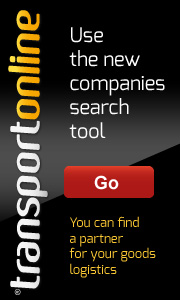Search Company:

On the occasion of IRU’s 75th anniversary year, Umberto de Pretto, who has worked in transport for over 30 years, discusses road transport’s past and future, as well as his personal journey in the industry.
When did you join the industry?
I first started working in “transport” in 1988 when I was given the transport portfolio as a Legislative Assistant for a Member of Parliament in Canada. I had to learn a lot about the industry very quickly. It was a very useful experience.
I experienced firsthand the ignorance, including mine, of politicians on fundamental aspects of our industry. I made the same false assumptions as some politicians make today, quite simply because the industry failed to effectively inform me about economic and transport realities.
What did you know about road transport before joining the industry?
I already knew a lot about cars thanks to a high school buddy of mine. As total gear heads, we used to take apart car motors and rebuild them for more “efficiency”, in other words, horsepower, when we were 16.
He taught me everything about how a car’s drivetrain operates, which has been of tremendous help in technical political discussions.
What has changed the most in the industry over the past 25 years?
Our environmental footprint. We’ve cut our toxic emissions by up to 98% over the past 25 years.
Transport operators now also understand that sustainability equals profitability.
What hasn’t changed?
The public’s perception of how clean our vehicles are, especially compared to private cars.
How has the perception of the industry changed over time due to IRU’s work?
Governments and international organisations increasingly see IRU, and therefore our industry, as a reliable partner that always comes to the table with pragmatic solutions.
If you could change one policy related to road transport, what would it be?
To be more efficient, ships and planes are made bigger, trains are made longer, yet the same logic isn’t sinking into the heads of decision-makers when it comes to trucks.
With eco-truck combinations (two trailers instead of one), we can reduce a truck’s CO₂ emissions by around 30%. It’s a no-brainer. A low-hanging fruit towards our objective of reaching net-zero emissions by 2050. But governments are doing very little to support this solution.
If you could change one aspect of how the industry is viewed, what would it be?
Our drivers are real life heroes. They don’t drive for fun. It’s to meet a social and economic need. Read more
Source: IRU




